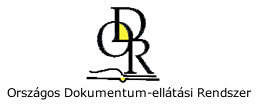A hónap angol nyelvû verse 2009. április
The Wanderer
A Wanderer írójától több mint 1000 év választ el bennünket, az érzések amiket megfogalmaz azonban számunkra is átélhetõk.
A vers a veszteségrõl szól. Arról a bánatról és szenvedésrõl amit szeretteink, a régi életünk elvesztése okoz. A versben szereplõ vándor a számûzetésben töltött évek során felül tud emelkedni személyes fájdalmán, és a hitben talál megváltást.
Az óangol versnek számos fordítása van. Olvasata, eredete máig vitatott.
A Wanderer az egyik legrégibb angol vers, egy 10. századi kéziratban (Exeter Book) maradt fenn. Valószínûnek tartják, hogy 597 táján született.
J.R.R. Tolkien A gyûrûk ura második kötetében (A két torony) a Wanderert idézi, amikor Aragorn Rohan elveszett királyságáról énekel.
Where now the horse and the rider? Where is the horn that was blowing?
Where is the helm and the hauberk, and the bright hair flowing...
A regény 2002-es filmváltozatában Théoden király szájából hangzanak el a sorok a Helm-szurdoki csata elõtt.
Where is the horse and rider? Where is the horn that was blowing?
They have passed like rain on the mountain, like a wind in the meadow.
The days have gone down in the West, behind the hills into shadow.
How did it come to this?
Mindkét változat egyértelmûen a Wanderer következõ szakaszára utal:
Where is the horse gone? Where is the rider?
Where is the giver of treasure?
Where are the seats at the feast?
Where are the revels in the hall?
Alas for the bright cup!
Alas for the mailed warrior!
Alas for the splendour of the prince!
How that time has passed away,
dark under the cover of night,
as if it had never been!
A Wanderer óangol szövege és annak egyik modern fordítása itt olvasható.
http://www.anglo-saxons.net/hwaet/?do=get&type=text&id=Wdr


 Intézményünk országos és nemzetközi hálózati kapcsolatát az NIIF Program biztosítja
Intézményünk országos és nemzetközi hálózati kapcsolatát az NIIF Program biztosítja









